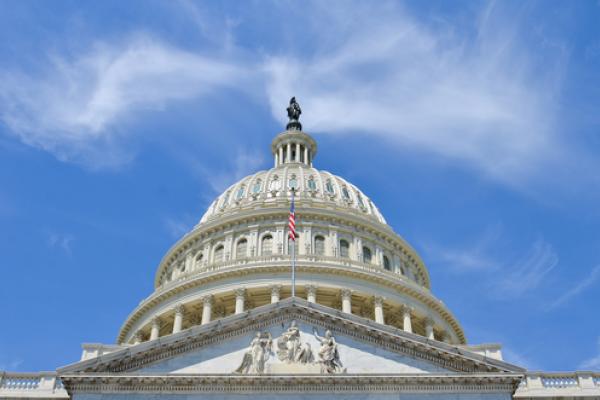Citing the need for transparency in the U.S. record on human rights, nearly 200 clergy and religious leaders from North Carolina are seeking the public release of a 6,000-page Senate intelligence report on U.S. torture of terrorism detainees after 9/11.
The letter, dated Aug. 27 and released to the media on Thursday, was sent from the North Carolina Council of Churches in Raleigh to Sen. Richard Burr, a North Carolina Republican who sits on the Senate Select Committee on Intelligence.
The letter, signed by 18 bishops, including the leaders of both of the state’s Catholic dioceses, stated that in light of conflicts in Syria and around the Middle East, transparency on U.S. torture practices was needed.
Primates and bishops from the Global South attending a gathering in Toronto, said current proposals for a new Anglican Communion covenant don’t go far enough to heal the conflict in the communion over homosexuality.
The Wednesday gathering to mark the 50th anniversary of the Toronto Anglican Congress, suggested the worldwide Anglican Communion faces troubled waters. Anglicans from the Global South prepare to meet for their second Global Anglican Future Conference next month and the Toronto meeting showed no signs of reconciliation.
Archbishop Ian Ernest, primate of the province of the Indian Ocean, said decisions by the Episcopal Church in the United States and the Anglican Church of Canada on issues involving homosexuality have torn the fabric of communion.
The message of Christ is not often so clearly presented in American media as it was yesterday, nor is that message as clearly contradicted in the same news cycle.
Yesterday, Pope Francis, while not actually changing any doctrinal stance of the Catholic church, clearly asserted in a rare and frank interview that compassion and mercy must be the light that radiates from the global church for the world to see, rather than the church’s current “obsession” with gays, birth control, and abortion.
At the same time that the pope’s words were cycling through the media, other words were also coming through loud and clear: those of Republican lawmakers who have decided that the least of these will remain just that and, accordingly, voted to slash the food stamp budget by almost $40 billion.
The juxtaposition presented between these two events is striking. It also represents an enormous divide among Christians, and, frankly, demonstrates why so many feel Christianity is a religion full of hypocrisy.
The reality is bleak: 33 Americans are killed and 260 wounded from gun violence daily. Yesterday, as the culmination of its No More Names bus tour, which reached 25 states in 100 days, Mayors Against Illegal Guns rallied at the Capitol to urge Congress to pass a bill enforcing mandatory background checks for potential gun owners.
Spearheaded in 2006 by Boston Mayor Thomas Menino and New York Mayor Michael Bloomberg, MAIG began with 15 mayors, and has since grown to more than 1,000. The group’s goal is to make American communities safer by reducing the number of illegally obtained guns and by holding dealers accountable for potential gun-purchasers.
At the Hill gathering, representatives from myriad groups came together to advocate for stricter background checks and to push Congress out of their inaction. Tuesday, the Senate postponed a hearing on the legality of “Stand Your Ground” laws — on the heels of Monday’s Navy Yard gun violence.
Congressional representatives, mayors, police officers, military veterans, NRA members, women’s organizations, advocacy groups such as Mothers Demanding Action, faith community leaders (rabbis, priests, and pastors), university groups, children, gun violence survivors, and family members of those who have lost someone to gun violence were all in attendance at the No More Names rally. A broad coalition: racially, socioeconomically, and generationally diverse, as indiscriminant as the bullets that affect us all.
In my state of Minnesota, there are literally hundreds of faith-based green teams doing a variety of good works. We’ve collectively tackled solar panels and bike racks. We’ve individually been consuming less, doing energy audits of our homes, and taking action in our neighborhoods. It is important work. And yet when I talk to the lay leaders in these congregations, they report that enthusiasm has waned and that their groups have become stale. As one tired (and yet tireless) leader confided in me: “I don’t know what it is, Julia, but it’s like we are swimming in molasses.”
As the new executive director of Minnesota Interfaith Power & Light I am trying to pay attention. What is this feeling of stuck-ness? If it’s not working, what then is the special sauce that will help these tireless leaders to ignite their communities?
A few observations about humans:
This Wednesday on Capitol Hill, the House subcommittee on Energy and Power held a hearing to discuss the Obama administration’s climate change policies and activities. The policies in question were the president’s Climate Action Plan, announced this summer, which has three main pillars:
- cutting carbon emissions,
- leading international efforts to combat climate change, and
- preparing the United States for climate change impacts.
The Environmental Protection Agency Administrator Gina McCarthy and the Energy Secretary Ernest Moniz were present to answer questions about the president’s plan, which works with new and existing programs in both agencies to reduce our climate change pollution and increase our resilience to climate change. Some of the programs are required by a recent Supreme Court decision that labeled carbon dioxide a pollutant; others, as Moniz pointed out, would happen to carry the benefit of energy efficiency.
For some members of Congress, this is a problem because they do not wish to cede any ground to the executive. For others, it is a problem simply because they do not wish to do anything about climate change.
Yesterday, before Republicans in the House of Representatives voted to push through a plan to slash nearly $40 billion from the food stamp program, Jim Wallis said we would keep an eye on which way of our elected officials voted.
"We will be watching who votes against feeding the hungry this week and will remember to bring that to public attention when they run for re-election. We will be doing our own faith count today. Stay tuned for the results."
Well here are the results. The plan passed narrowly, 217-210 — with all the yea votes coming from the Republican side. Fifteen Republicans joined with the Democrats against the plan.
So, who voted for that $40 billion cut to the food stamps program, which would kick an estimated 4 million hungry people out of the program next year? Here's your list. Is your Congress member on it?
The House of Representatives on Thursday evening narrowly passed a plan that cuts about $40 billion* from the Supplemental Nutrition Assistance Program (SNAP), or food stamps program. The Congressional Budget Office estimates that the move will push nearly 4 million low-income people off of the program in 2014. USA Today reports:
"The House voted 217-210 for the bill that cuts nearly twice as much from food stamps as a bill the House rejected in June. It is also far more than a Senate measure passed earlier this year that would trim about $4.5 billion in spending. The bill failed to draw the support of a single Democrat, many of whom have said the steep cuts would erode a key safety net depended upon by families with children, seniors, veterans and people looking for work."
Earlier on Thursday, Sojourners President Jim Wallis condemned the then-proposed cuts, saying, "These same politicians are not willing to go to where the real money is: the Pentagon budget, which everyone knows to be the most wasteful in government spending, or the myriad subsidies to corporations, including agribusiness subsides to members of Congress who will be voting to cut SNAP for the poor. ... They are going after cuts to the poor and hungry people because they think it is politically safe to do so. So let’s call that what it is: moral hypocrisy."
Check back with Sojourners for details on how your congressperson voted.
Pope Francis on Thursday rocked the Catholic Church and surprised the wider world with a free-ranging interview that charted a course away from an institution that’s “obsessed” with a few sexual and moral issues and toward one that is more pastoral, less clerical and less doctrinaire.
But amid the widespread praise for his remarks – “Catholic is the new cool,” tweeted National Journal’s Ron Fournier – and some pointed criticism from the pontiff’s right flank, there lurks a critical, unanswered question: Can Francis make his vision for the church a reality?
More than detailing a list of reforms or policy change he hopes to make — which may yet happen, after time and extensive deliberations — the pope was sketching out a pastoral vision for the church, and modeling a way for clergy to speak and relate to their flocks.
In order to replicate that model, Francis needs enough time to appoint bishops who share his views and who can in turn encourage and promote like-minded priests and seminarians. In many ways, the type of change Francis envisions will take a generation or more.
![Senator Richard Burr photo courtesy US Senate [Public domain], via Wikimedia Commons](https://sojo.net/sites/default/files/styles/large_rectangle_crop/public/blog/Richard_Burr_official_portrait_crop-295x369.jpg?itok=V0nvFrvc)







